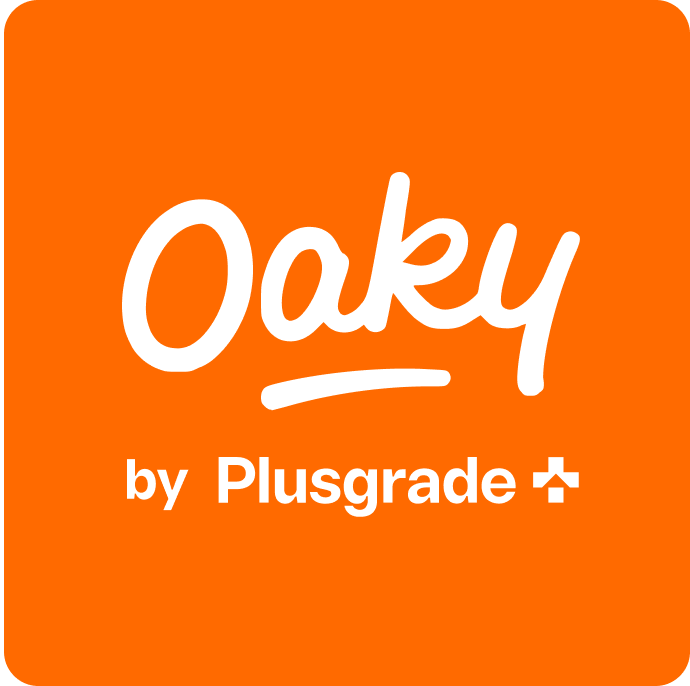How to sell hotel rooms: 13 ways to increase revenue
Oaky
•
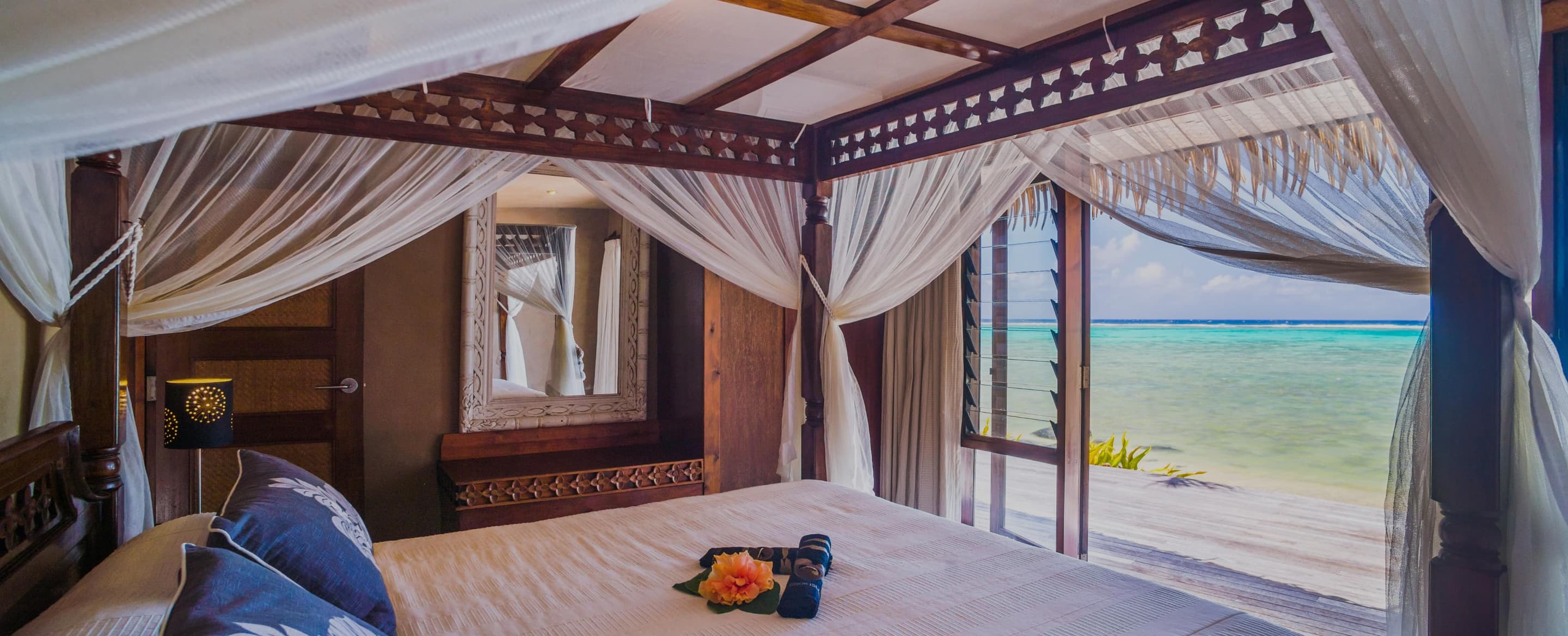
How to sell hotel rooms sounds like the first lesson a hotel manager will cover, but it remains a continuous learning school. It’s more nuanced than simply saying you should sell as many rooms as you can.
You need to think ahead and keep sight of the bigger picture. Having a few empty rooms can make sense, if you can, for example, maximize premium room sales or attract corporate groups that also pay for coworking spaces.
Whether you prefer the traditional approach of dangling discounts or you’re ready to get more creative, here are 13 strategies to sell more rooms.
What is hotel room selling?
Hotel room selling refers to the different strategies hotels use to sell their different types of rooms to guests. Rooms remain hotels’ primary inventory and main revenue source, making it an essential skill that hotels must master. It’s especially important when it comes to the selling of premium rooms which are often unbooked.
While the main goal is to boost revenue, the focus should also be on improving the guest experience.
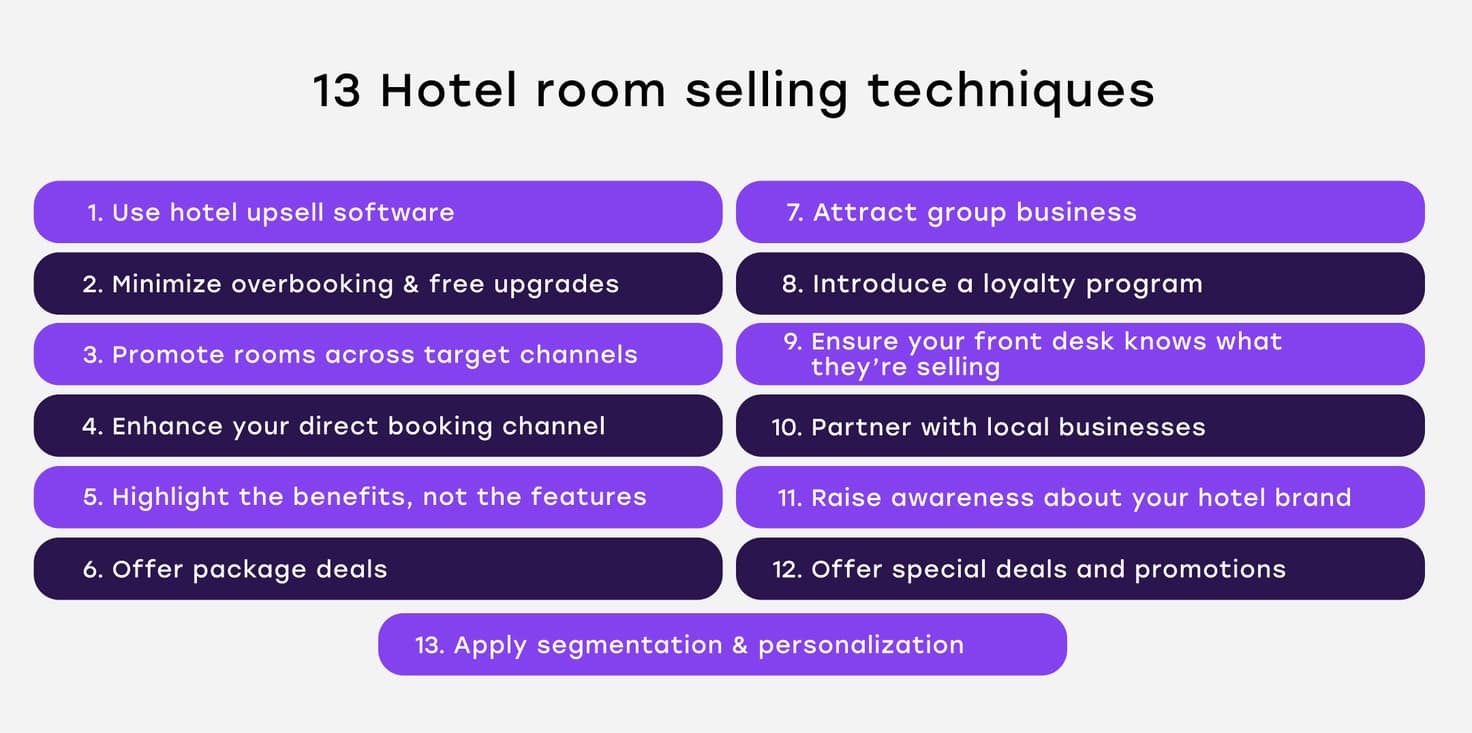
What are the most effective hotel room selling techniques?
1. Use hotel upsell software to maximize premium room sales
In many cases, when booking on online travel agencies (OTAs), guests are presented only with standard rooms. Even if they have money to book a suite or another high-category room, they’re unaware of this opportunity. As a result, you also leave money on the table.
Hotel software like Oaky can tackle this problem and improve hotel sales by allowing you to communicate your offerings, including room upgrades, services, and add-ons in advance. With pre-arrival emails sent at the most opportune times and by automating upselling at the front desk, hotels can increase their hotel room sales, filling up high-category rooms more effectively.
What makes focusing on selling high-category rooms first such a clever strategy is that it frees up standard rooms which are easier to resell to last-minute guests. If you manage to pull this off, you can maximize occupancy and revenue at the same time.
2. Minimize overbookings and the need to give away free room upgrades
This strategy closely ties in with the previous point about prioritizing premium rooms. Overbooking standard rooms is a common practice in the hotel industry, but there’s a risk that you’ll end up underutilizing your room inventory.
In fact, according to Oaky’s research, big hotel chains can lose out on as much as €1622 per room per year by overbooking standard rooms.
Now, if you use pre-arrival upselling, you can sell high-tier rooms more effectively in advance. This will lessen the impact in case you should upgrade guests to a premium room for free because of double-bookings.
3. Promote your rooms across all your target channels
The best way to fill rooms is to use a combination of channels. Make no mistake, listing on OTAs can help you reach a large pool of guests. Plus, as guests find the booking experience intuitive, they are easy channels to sell hotel rooms. However, the commission fees add up.
When listing on OTAs, you should focus on:
Unique selling propositions: Showcase what sets your hotel apart. Private villas, a butler service, gourmet dining options, and exclusive excursions are good examples of features that deserve highlighting.
Storytelling: Instead of just listing amenities and services, use rich storytelling when writing your descriptions. For example, a description like “indulge in a sunset champagne cruise at our five-star, boutique beachfront resort” will evoke feelings of relaxation.
High-quality videos: If the OTA allows you to upload videos, do so. When used with rich storytelling, high-quality videos help to bring the experience to life.
Mobile bookings: Ensure that your pricing and images are optimized for mobile-first experiences. To help you rank higher in the OTA search results, you can also enable mobile-only discounts.
Joining programs: Certain OTAs offer programs that offer extra marketing support. For example, joining Booking.com’s Genius program and Expedia’s VIP Access will generate additional exposure. In fact, according to Expedia’s data, VIP access properties can increase their average daily rate by as much as a third.
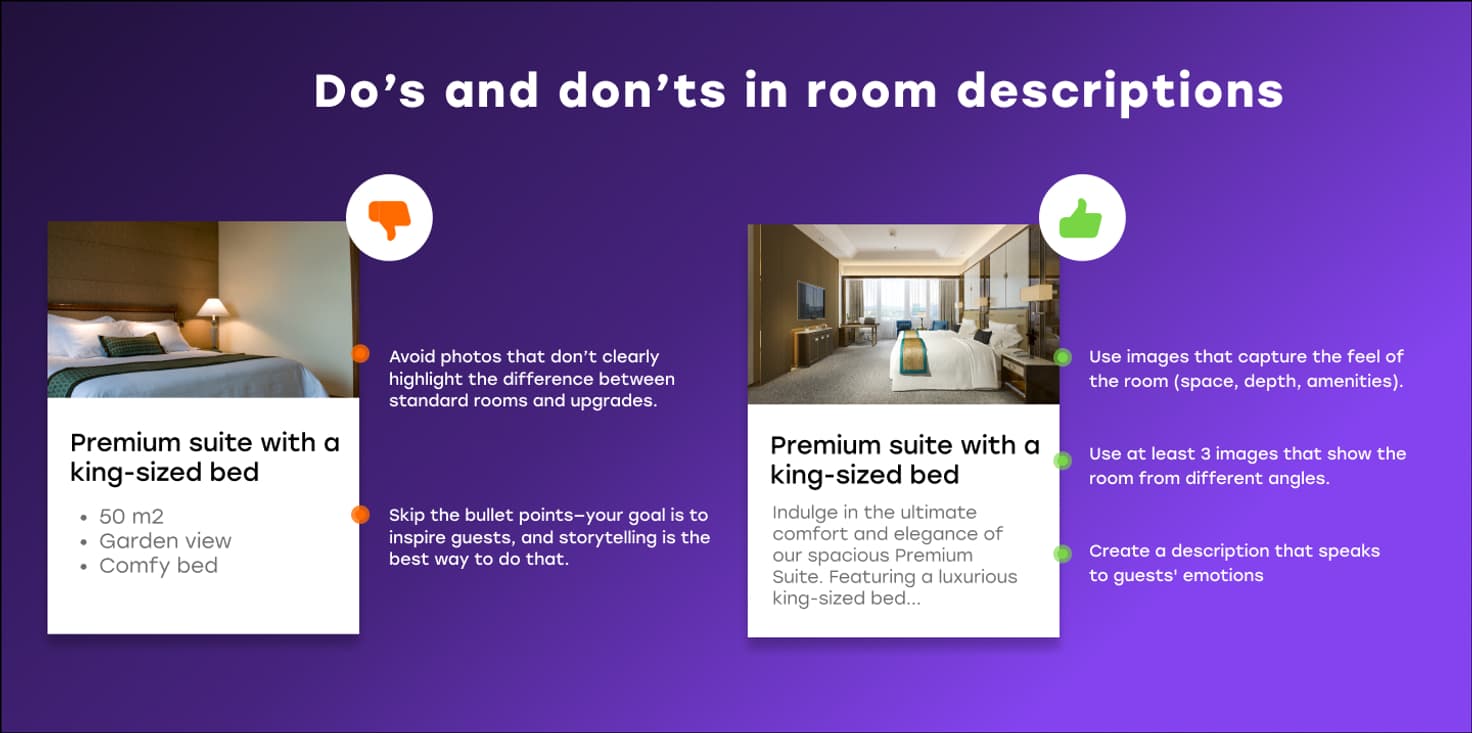
Keep in mind that when going with the multichannel approach, it’s key to keep listings consistent. You should use consistent imagery and descriptions across all platforms. This will help your listings and brand look trustworthy and credible.
4. Enhance your direct booking channel
Your own website is one of your best hotel sales tools. It eliminates the need to pay hefty commissions to OTAs and allows you to set more competitive pricing, while also promoting your add-ons and special packages. On top of that, a direct booking website gives you more control over your brand and guest data that you can use to build targeted marketing campaigns and drive guest loyalty.
To boost direct bookings, you should:
1. Implement a direct booking strategy
Prioritize direct bookings and create a clear plan on how this can be achieved. Identify the channels your ideal guest uses to drive direct bookings.
2. Optimize your direct booking website for mobile
Ensure that your website is mobile-friendly. According to Statista, mobile devices generated 70.5% of all online traffic in the travel and hospitality industry in 2024. When it comes to actual bookings, over one third of global travel bookings were completed via mobile apps and websites.
Hence, to get mobile bookings through your direct booking website, ensure the following elements are in place:
Responsive website design: Provide a consistent experience across devices by making sure your website easily adapts to various screens.
Fast loading speed: Mobile users expect quick access to information. Delays can lead to potential guests leaving your site. Compress images, leverage browser caching, and minimize code to enhance performance.
Simplified navigation: Reduce the number of steps required to complete a reservation. Use autofill features, minimize form fields, and provide clear progress indicators to enhance user experience and reduce abandonment rates.
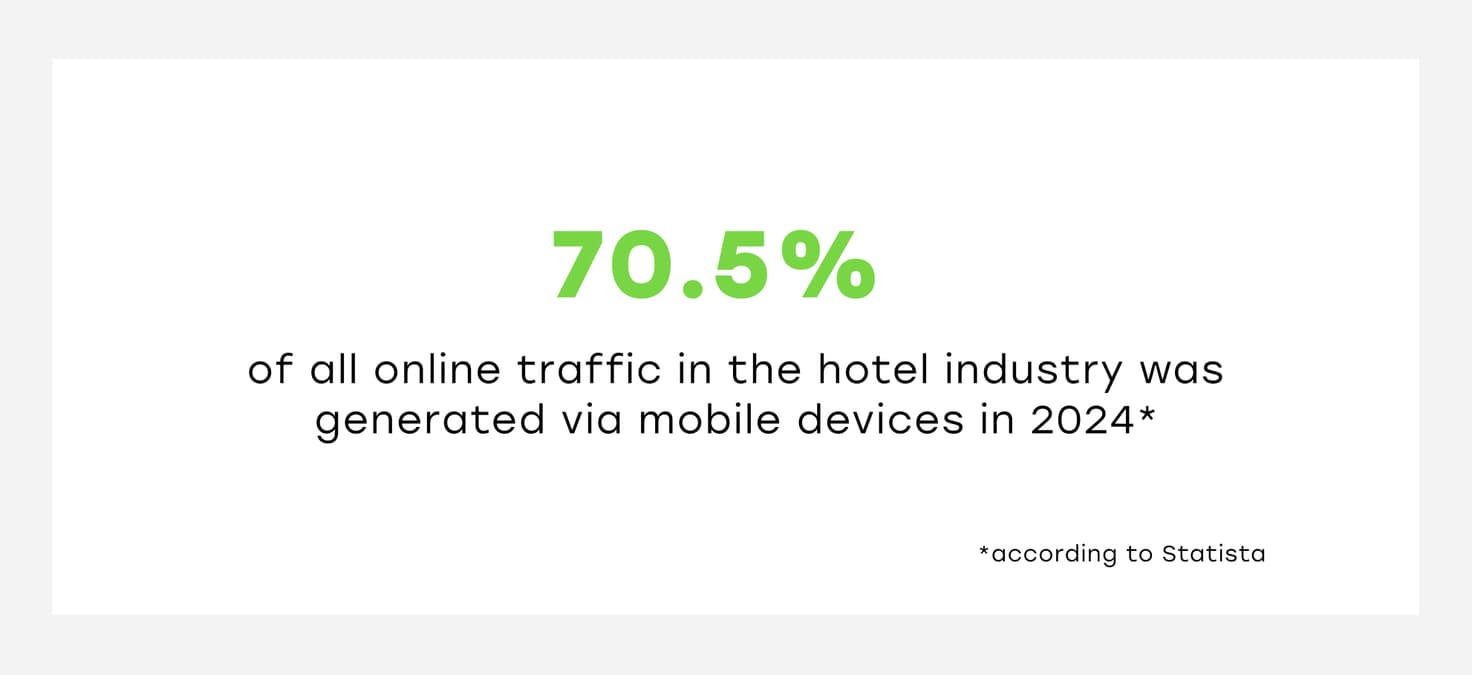
3. Integrate a seamless booking engine
A clunky or slow booking process is one of the top reasons guests abandon direct bookings. To prevent this, integrate an intuitive online booking engine directly into your website. The system should allow guests to check room availability, view pricing, and book quickly to ensure a seamless booking experience.
4. Offer exclusive deals for your direct bookers
Consider offering a price-match guarantee that ensures the price on your website is the best available. This will help you drive a significant volume of room sales via your website.
You can also provide exclusive perks, like app-only bundled deals, for guests who choose to book directly. For instance, you can bundle a room upgrade with early check-in or a spa package. It’s a great alternative to discounts as you can generate a higher margin.
5. Highlight the room benefits, not the features
Many hotels simply list features (for example, square meters, room location, etc.) on OTAs and in their pre-arrival emails without conveying the actual feeling the room provides. Focusing on the room’s benefits and experiences guests can enjoy will help create more engaging descriptions of your rooms.
Highlighting a major selling point in your listing descriptions and marketing material is a good place to start.
Then, ensure that this strategy is also applied to front desk upselling. Your front desk staff’s face-to-face interaction with guests makes them perfectly positioned to tailor room upselling suggestions to the guests in front of them.
Here are a few examples of how it will look in practice:
For families with kids, a front desk agent can present connecting rooms as a way to offer more privacy.
A room with a garden view can be positioned as a space for enhanced relaxation or a more romantic ambiance for leisure travelers or honeymooners.
For business travelers, a quiet corner room can be upsold as a space that’s ideal to get work done without distractions.
6. Offer package deals
Bundling rooms with other amenities like a spa treatment or round of golf can be beneficial for profitability. It works because it increases the perceived value.
This strategy can also help you to attract a specific group of travelers. For example, if you wish to grow your appeal among business travelers, you can add a shuttle service and laundry service.
That said, when creating bundle deals, you need to be mindful of tax (VAT implications). Martin Morawski, VAT lawyer and partner at Hamelink & Van den Tooren, suggested smart ways to bundle deals to reduce VAT implications.

7. Attract group business
Attracting group bookings is beneficial, especially for generating higher occupancy during the low season. Your target audience is generally businesses/corporate travel managers planning a team building or families getting together to celebrate a special event like a wedding.
Offering discounted rates is the most common strategy to help you land more group bookings. As is with other types of transactions in the hospitality industry, it’s generally expected that guests will qualify for a lower rate for buying or booking in bulk.
In addition to discounts, you can also work with event planners and travel agents or use your own upselling to offer extra services aimed at groups. Think meeting spaces, co-working spaces, catering, or VIP lounge access that will complement their hotel reservation.
8. Introduce a loyalty program
A loyalty program helps build relationships and generate repeat bookings. Rewards, exclusive discounts, or perks double up as unique selling points, setting your hotel apart from competitors.
On top of that, it can also help save acquisition costs. Loyalty members are more likely to book directly via the hotel's official website or app, reducing commission fees paid to OTAs.
Also, as data shows, loyalty members tend to spend more upon arrival. This results in higher guest spending per day.
There are different ways that you can drive guest loyalty. A few proven ideas include:
Member-only rates where you offer exclusive discounts for returning guests.
Refer-a-friend discounts that give a discount to both the referrer and their friend.
Booking directly perks that reward guests who book via your website with free breakfast, late checkout, or early access to buying tickets for sporting events.
9. Make sure your front desk team is familiar with the products they’re selling
One of the mistakes that hotels usually make is not making sure their employees, especially guest-facing, such as a front desk team, are aware of what they’re selling. In fact, it could be that they’ve never even seen a superior room or tasted a Chef’s menu.
To help your team communicate the unique selling points, ensure that they know how the rooms and products look and why they can be beneficial to guests.
10. Partner with local businesses for cross-promotion
Partnering with local businesses for cross-promotion can help sell more hotel rooms by expanding reach and creating unique value propositions. Examples of potentially profitable partnerships include:
Tour operators and attractions: Partner with city tours, adventure activities, or cultural sites for discounted experiences for hotel guests. Think bundled hotel + experience packages (e.g., “Stay and Safari” or “Stay and Surf” deals).
Event venues and wedding planners: Work with wedding venues or conference centers to offer group stay discounts for guests.
Local retail shops and malls: Offer hotel guests shopping discounts at partner stores. Alternatively, bring the shopping experience to your hotel and set up pop-up experiences in the hotel lobby featuring local products.
Local influencers and content creators: Partner with local travel influencers to showcase the hotel’s offerings. You can, for example, offer free stays in exchange for exposure to their audience.
11. Raise awareness about your hotel brand with digital marketing
Being present on multiple channels isn’t enough to build brand awareness, you also need to market your hotel actively using various digital channels that include:
Search engine optimization (SEO)
Your hotel website will be your main vehicle for attracting more organic traffic. It requires a combination of technical SEO strategies and content marketing.
One of the easiest ways is to create a blog and FAQ page featuring your hotel and the local attractions. While it will focus heavily on basing your content on the right keywords, it should never be at the expense of offering value to potential guests.
Generative engine optimization (GEO)
Generative Engine Optimization (GEO) is the next evolution of digital visibility, especially as more travelers use AI-powered tools like ChatGPT or Google’s Search Generative Experience to plan their trips.
Unlike traditional SEO, which focuses heavily on keywords and metadata, GEO is about creating content that answers specific, real-world questions in a natural, helpful tone.
For hotels, this means shifting focus toward content that anticipates guest needs—like detailed descriptions of amenities, answers to common questions, and storytelling around experiences rather than just features.
The goal is to match search intent and provide enough context for generative engines to pull your content into their responses. Clear structure, updated pages, and a conversational tone all help improve your chances of being featured.
Social media marketing
Thanks to their visual nature, Instagram and TikTok in particular are popular channels for hotel marketing. In fact, a study completed in November 2024, 44% of UK travelers visited a destination or made a travel purchase after seeing a post on Instagram. TikTok can be equally effective and boasts a conversion rate of 42%.
Content marketing
Content marketing ties in closely with SEO and GEO. However, it’s much more than simply writing weekly blog posts. From viral videos to long-form listicles, hotels must use various types of content to grow their reputable brand.
Email marketing
Emails are particularly useful for sharing time-sensitive information about local events and exclusive offers. To improve your email marketing efforts, continuously build your email subscriber list and personalize email messages.
Pay-per-click advertising (PPC)
To keep your marketing strategy balanced, you also need to dedicate budget to paid ads. It takes time to build a following on social media and grow your email list, but with PPC you can put your hotel in front of target travelers immediately.
12. Offer special deals and promotions
Deals shouldn’t be limited just to bulk bookings or bundles. There are various ways to get creative with special deals or promotions.
Here are some other ideas that you can try to sell more rooms:
Exclusive app or web-only offers to encourage guests to book directly rather than through OTAs
Limited-time offers like early-bird discounts or last-minute deals
Holiday promotions such as special packages for Christmas, New Year’s, or Valentine’s Day
Seasonal specials such as exclusive free upgrades for extended summer stays or cozy perks like complimentary hot drinks or in-room fireplaces.
13. Segment your guests to personalize your offers
Personalization is key to giving guests what they truly want while increasing hotel bookings and revenue. To start with personalization, identify your most common guest segments and create relevant tailored offers.
This is another strategy with which hotel upsell software like Oaky can help. It allows you to get these offers in front of the right guests during crucial stages like post-booking, pre-arrival, and check-in.
By suggesting personalized upsells, hotels can:
Tailor offers based on guest demographics, booking history, and interests to make premium rooms feel more relevant, making guests more likely to book
Ensure a better guest experience as guests will receive themed promotions that match their needs (like family-friendly packages for parents or spa retreats for couples)
Show guests they’re valued which helps to build loyalty and repeat business.
Drive ancillary revenue, as personalized upgrades and services generate higher conversions.
Final thoughts
So selling hotel rooms is not just about making your actual hotel rooms attractive. You also need to make the deal appealing.
Whether that’s to create packages involving other businesses or simply starting with changing how you describe the room, there are various effective hotel room selling techniques.
Know your target market like you know your own products. Then, match the most relevant technique to their needs to personalize your offering. And, most importantly, don’t leave premium room sales to chance. By upselling proactively — before arrival and at the front desk — you can keep those rooms booked consistently without the need to discount them and add extra pressure on your team.
